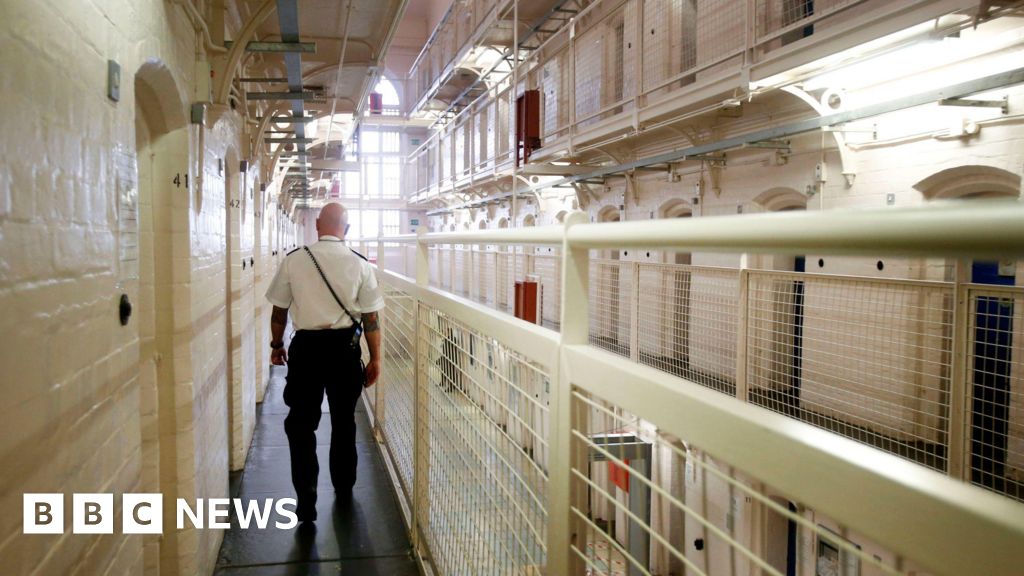Football
Brave and bold change needed on Scotland’s prisons – watchdog

 PA Media
PA MediaScotland’s chief inspector of prisons has called for radical options to be considered to reduce overcrowding, in her final report on the country’s crisis-hit jails.
Wendy Sinclair-Gieben called for a bold and brave justice agenda with fewer people being sent to prison and more effective use of rehabilitation for people who are locked up.
Her sixth and final annual report comes as Scotland has emergency measures in force to release prisoners early because there is no more space in the system.
Justice Secretary Angela Constance said: “We are taking action to deal with the pressures of a high and complex prison population, including the emergency release scheme approved by parliament and a consultation on release arrangements for long-term prisoners.”
She added: “We are also working with the prison service, NHS and others to ensure the prison population has the same level of healthcare as is offered in the community.”
Ms Sinclair-Gieben said overcrowding was stubbornly entrenched in Scotland’s prisons and remains the number one issue.
 b
bScottish Prisons have a target operating capacity of 8,007.
In May, there were 8,346 prisoners incarcerated, a record level, including more than 700 with sentences of under 12 months.
It led the Scottish government to announce plans for early release of hundreds of prisoners.
Ms Sinclair-Gieben said she had warned as far back as 2020 that fewer people needed to be sent to prison or there would be a crisis.
She said the prison population was far in excess of the Scottish Prison Service’s ability to provide a humane, rehabilitative experience.
The chief inspector praised the work that had been carried out on women’s custody and said an equally ambitious approach should be taken to the rest of the prison system.
She said it might lead to fewer people being sent to prison, less time having to be spent in jail, more effective use of any time spent there and robust release planning and support.
Ms Sinclair-Gieben also said too many acutely mentally unwell people were being held in custody when they should be getting in-patient care.

The chief inspector called for “a bold and brave transformational justice agenda” to to reduce the prison population.
She said this would allow the SPS to close some of its ageing and expensive buildings.
Scotland largest prison, Barlinnie in Glasgow, has been running at 140% capacity with just under 1,400 prisoners when it was designed for 987.
A replacement for the 140-year-old jail was due to open in 2025 – but that has been pushed back to 2027.
A site for the new jail, expected to have a capacity of about 1,200, was bought in 2020 and planning permission has been granted but building work has not yet started.
A new prison in the Highlands – on a site near Inverness Campus – is expected to be completed in 2026 – six years later than originally planned.
Ms Sinclair-Gieben it would be a “travesty” to see any delay in the arrival of the much-needed prisons in Glasgow and Highland.
‘Constructive challenge’
A Scottish Prison Service spokesperson said: “We welcome the chief inspector’s final annual report and are thankful for the constructive challenge she has provided in the interests of those in our care, their families, our staff, and the justice sector as whole over the past six years.
“She cites many examples of how SPS staff work to support people, such as the growth of recovery cafes; the focus on reducing the demand for illicit substances; the many partnerships aimed at building skills and improving employment prospects; and the care and compassion shown every day, often in extremely challenging circumstances.”
The spokesperson added: “In particular, the chief inspector highlighted the excellent staff-prisoner relationships at HMP Greenock; the strong management and committed staff group at HMP Perth; the vision, energy, purpose, and direction brought to HMP & YOI Polmont, and HMP Edinburgh’s impressive peer mentor system for new admissions.
“We share the chief inspector’s ambition to go even further as we support rehabilitation, reduce the risk of reoffending, and help support safer communities.”











